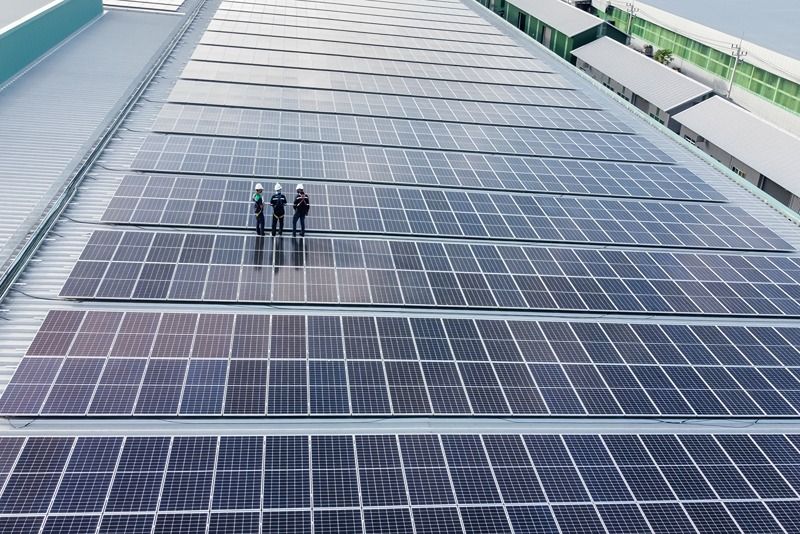In 2025, Indian manufacturing units face mounting pressure to reduce operational costs while aligning with environmental sustainability goals. Energy expenses, often constituting a significant portion of operational budgets, present a prime opportunity for cost optimisation. Solar rooftop systems emerge as a strategic solution, offering substantial long-term savings and energy independence.
Economic advantages
Electricity tariffs for industrial consumers in India have been on an upward trajectory, with rates varying between ₹6 to ₹10 per kWh, depending on the state and consumption patterns. By installing solar rooftop systems, manufacturing units can generate their own electricity, thereby reducing reliance on grid power and mitigating exposure to tariff hikes.
The initial investment in solar installations has become more accessible due to declining costs of photovoltaic panels and supportive government policies. The Ministry of New and Renewable Energy (MNRE) offers subsidies under schemes like the PM Surya Ghar Muft Bijli Yojana, which provides financial assistance to residential and commercial entities for rooftop solar installations. Additionally, benefits such as accelerated depreciation and net metering policies enhance the financial viability of solar projects for industrial users.
Operational efficiency
Manufacturing units often operate during daylight hours, coinciding with peak solar generation periods. This synchronicity allows for maximum utilisation of solar energy, reducing the need for energy storage solutions and ensuring a consistent power supply. Furthermore, advancements in solar technology have improved the efficiency and reliability of rooftop systems, making them a dependable source of energy for industrial operations.
Environmental impact
Transitioning to solar energy enables manufacturing units to significantly reduce their carbon footprint. By generating clean energy on-site, these units contribute to national goals of increasing renewable energy adoption and decreasing greenhouse gas emissions. This shift not only aligns with global sustainability trends but also enhances the corporate image of manufacturers committed to environmental responsibility.
Implementation considerations
Before adopting solar rooftop systems, manufacturing units should conduct a thorough assessment of their energy needs, roof space availability, and structural integrity. Engaging with certified solar energy consultants can aid in designing an optimal system tailored to specific operational requirements. Additionally, understanding state-specific regulations and incentives is crucial for maximising the benefits of solar installations.
Conclusion
For manufacturing units in India, solar rooftop systems present a compelling opportunity to achieve cost savings, enhance energy security, and contribute to environmental sustainability. With supportive government policies, technological advancements, and the pressing need for operational efficiency, the adoption of solar energy solutions is poised to become a standard practice in the industrial sector.




 +91 7208055523
+91 7208055523
 Help & support
Help & support
